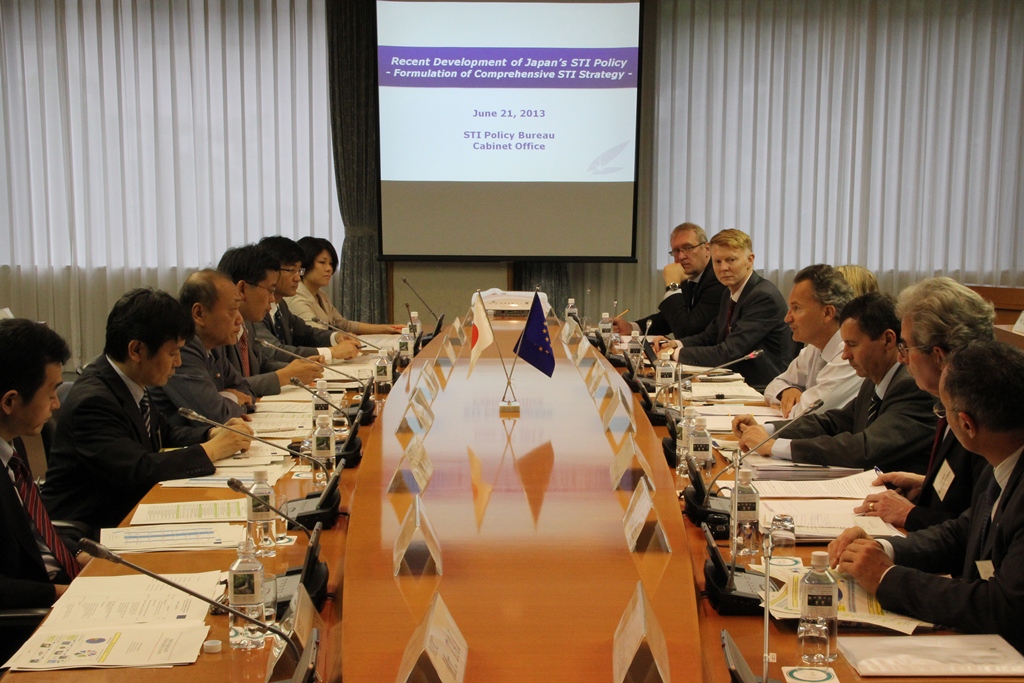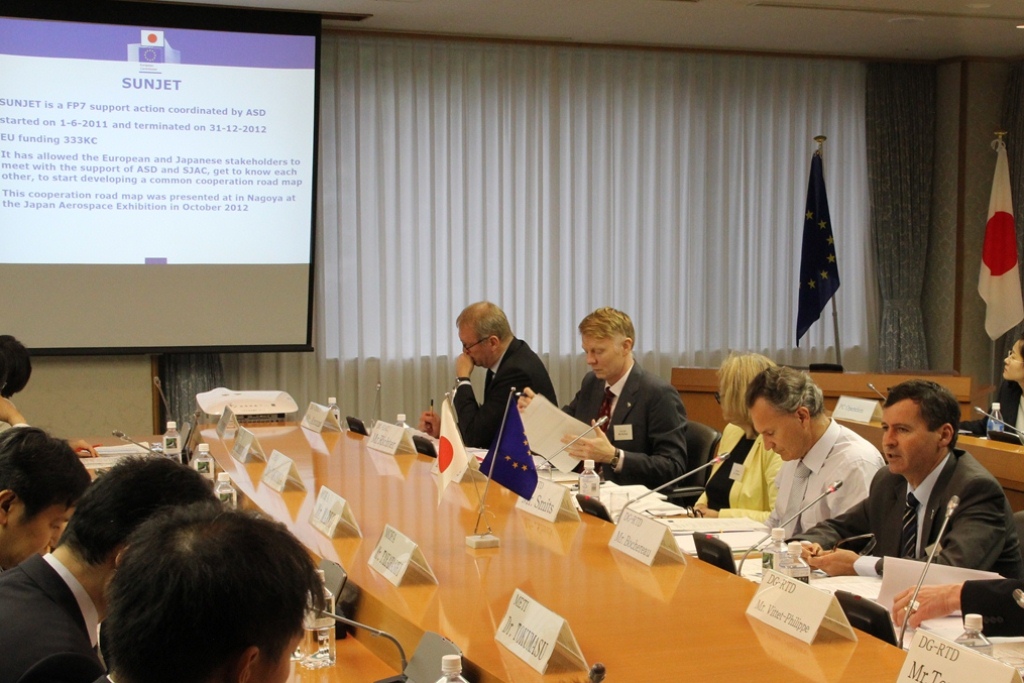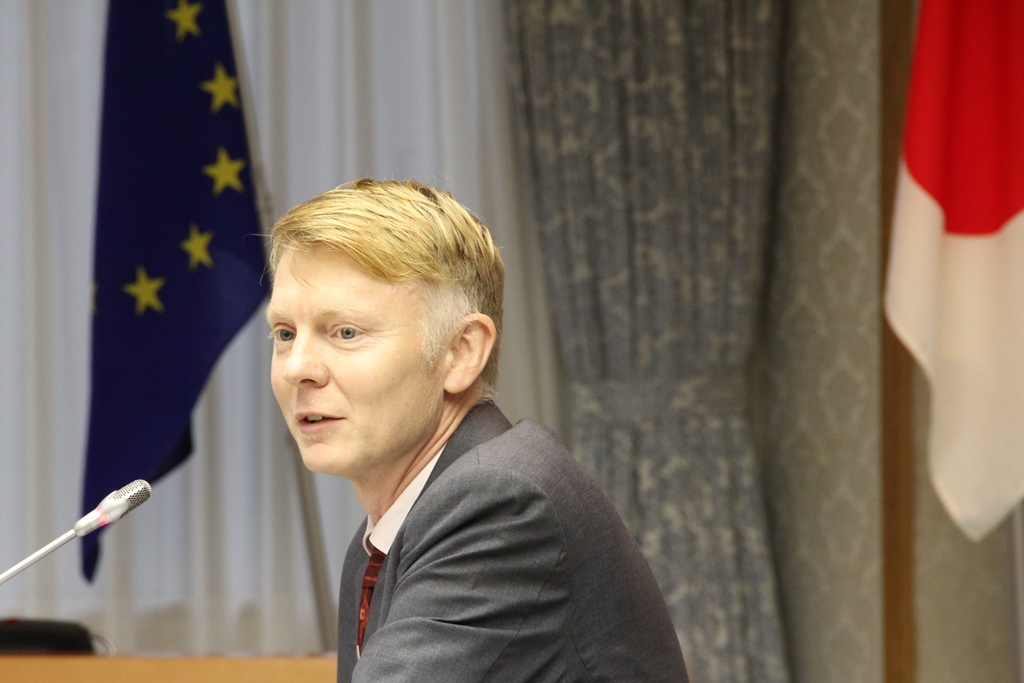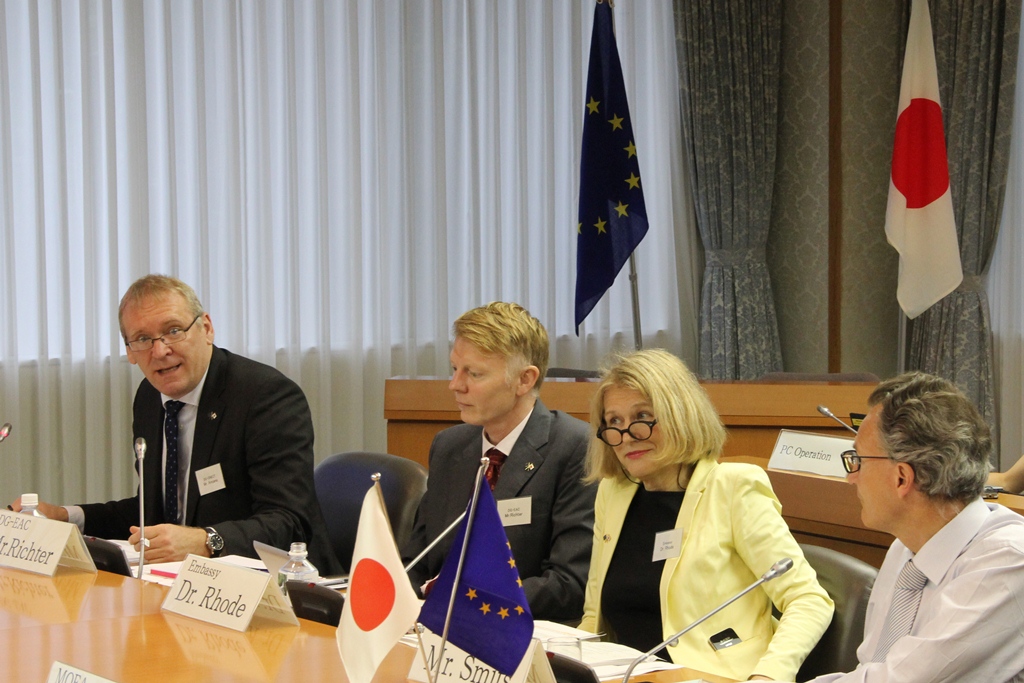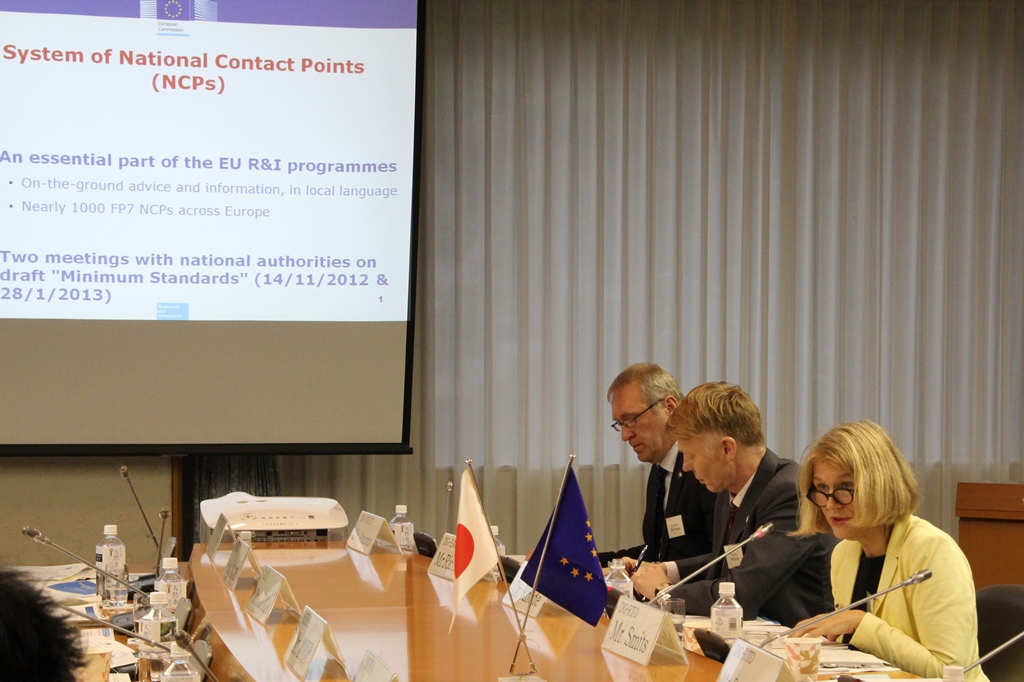EU-Japan Joint Committee on Science and Technology Cooperation
EU News 300/2013
2013/06/24
On Friday 21 June 2013, in Tokyo, Mr. Robert-Jan Smits, European Commission Director-General for Research and Innovation and H.E. Shin Maruo, Ambassador for Science and Technology Cooperation of the Ministry for Foreign Affairs of Japan co-chaired the second meeting of the EU-Japan Joint Committee on Science and Technology Cooperation, organised under the EU-Japan Science and Technology Cooperation Agreement which entered into force on 29 March 2011. In this very constructive meeting, hosted by the Ministry of Foreign Affairs of Japan with the participation of high-level representatives of key Japanese ministries and research funding organisations, both sides discussed strategic areas of common interest with a view to further strengthen and deepen S&T cooperation between the EU and Japan.
On the occasion of this meeting, Director General Robert-Jan Smits declared: "Japan is a key strategic partner for Europe in S&T. We both have world class facilities and world leading researchers. We share many of the same values, and face many of the same challenges - including an ageing population, climate change, energy security, and access to critical raw materials. We both recognize the crucial role of research in addressing these global challenges, and the need to cooperate internationally. I welcome the significant progress achieved in the two years since the entering into force of our Joint S&T Agreement. The new European programme Horizon 2020, which is open to all our international partners, will offer unprecedented opportunities to reinforce our cooperation with Japan"
Ambassador Shin Maruo said: “Japan has a longstanding history in S&T cooperation with Europe. Both Japan and the EU are being faced with common challenges, such as restoration of their economies and competitiveness and global issues. Science and technology cooperation plays a key role to overcome these challenges. We both recognise the important role of the Joint Committee to overview the comprehensive picture of cooperation, and to enhance the global partnership base on common values between Japan and the EU. Decision of the Comprehensive STI Strategy on the Japanese side and launching of the Horizon 2020 on the EU side will open the door to a new stage of S&T cooperation.”
Both sides exchanged recent developments and perspectives of their S&T policies, and reaffirmed the importance of S&T policy in their political context. Japan recently decided a Comprehensive STI Strategy to enhance the restoration of robust economy under the Abe administration, while the EU to be launching Horizon 2020, a framework programme for research and innovation.
The Committee overviewed joint achievements in EU-Japan cooperation, in particular the 5 Coordinated Calls launched over the past two years in the area of energy, aeronautics, ICT and critical raw materials. Also, the committee covered key topics such as photovoltaics, advanced aircraft engines, cloud computing and the substitution of critical materials, having referred to 17 joint projects, generated up until now and co-funded by key Japanese partners such as the Japanese Ministry for Economy, Trade and Industry (METI), the New Energy and Industrial Technology Development Organisation (NEDO), the Japanese Science and Technology Agency (JST), the Ministry of Internal Affairs and Communications (MIC) and the National Institute of Information and Communications Technology (NICT).
The Committee also recognised the contribution of the ERA-NET project CONCERT-Japan in harnessing the combined resources of 3 Japanese organisations, as well as 10 funding organisations from EU Member States, EU Regions and Associated Countries. In addition to actively furthering partnerships between European and Japanese researchers, the project launched 2 successful 'pilot joint calls' in the two highly relevant thematic areas of Resilience against Disasters and Efficient Energy Storage and Distribution, which financed 9 new projects involving 41 research teams from Japan and Europe, as well as from third countries (Australia).
Looking forward, the meeting focused on the three "flagship" priorities jointly defined with Japan critical raw materials, aeronautics and ICTs. The key contribution of Japan in the EU-Japan-US Trilateral Dialogues on Critical Raw Materials, a key strategic area for both partners, and its scientific input in the projects launched in this area, were duly recognised. The Committee also welcomed the fruitful cooperation launched in the area of aeronautics, with the 3 ongoing projects launched under the Joint Call, and the setting up at Le Bourget air show of a new European-Japanese Working Group on civilian aeronautics research to oversee bilateral cooperation and identify future research topics of mutual interest. In the area of ICT research, both sides recognised and welcomed that 6 projects successfully launched in this year through the first coordinated call and that both sides have already started the process for the next call starting for 2014, such as identifying the areas of the next coordinated call. And they shared the view that Japan and the EU will continue to be one of each other's main partners, with active cooperation with research organisations and ICT industries in Japan and the EU.
Both sides recognised that these joint projects will decisively contribute to addressing our common challenges, including through the development of standards.
Both sides shared the view on the importance of researcher mobility, on the need to reinforce exchange of scientists between Europe and Japan, in particular by maximising the use of existing schemes in Europe (Marie Curie Actions, ERC grants Erasmus Mundus,) and in Japan (Open Partnership Joint Research Projects/Seminars, JSPS Fellowship Programs).
Finally, the Joint Committee noted the importance of ongoing negotiations on an EU-Japan Free Trade Agreement and on a parallel Strategic Partnership Agreement which would cover future bilateral S&T cooperation, and underlined the new opportunities these will open in this area.
Both sides shared the intention to consider holding the next Joint Committee next year in Brussels.
- Visit of Robert-Jan Smits, Director-General of DG Research and Innovation, European Commission of the EU at JCM, 21 June 2013
- Visit of Robert-Jan Smits, Director-General of DG Research and Innovation, European Commission of the EU in Tokyo, 21 June
Photos by TK, EU, 2013
Updated 2013.07.12


